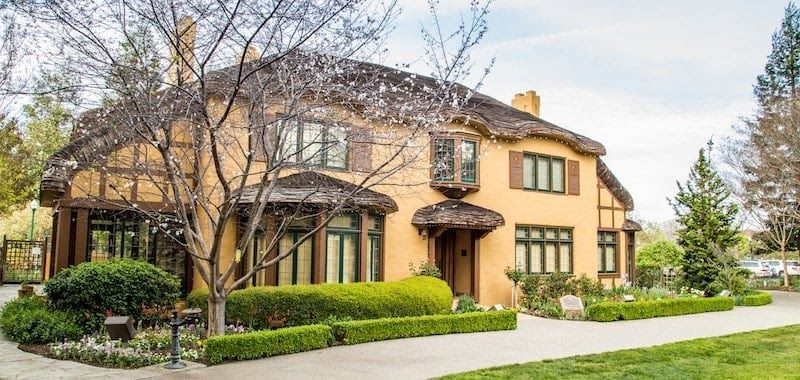Understanding the Assisted Living Experience
Get help understanding the assisted living experience. Seniorly can help you get a feel for what to expect from daily life in an assisted living community.

Assisted living in the United States has evolved rapidly in the last four decades. From sterile nursing home settings, to new retirement communities focused on mind, body, and soul, the assisted living experience is changing for the better. Today’s assisted living communities are as diverse as the population of the United States itself. As Forbes notes, The Centers for Disease Control and Prevention (CDC) has a standard definition for nursing homes, but no such designation for an assisted living residence.
Assisted living communities are regulated at the state level, giving rise to variances between locales. As such, it is important to understand the types of senior living available to you or your loved one. Today, here are some of the most common types of assisted living:
- Senior apartments – Generally speaking, these living spaces are tailored to the needs of any active adult over the age of 55.
- Independent living – Communities designed for those with few to no disabilities providing limited assistance to residents.
- Memory care – Designed specifically for retirees with memory impairment, these communities provide a higher level of care from trained staff members in settings that still provide a sense of day to day independent living.
The Massachusetts Assisted Living Association notes that “assisted living offers an enhanced residential experience and is not a medical environment.” Assisted senior living services focus on the residents, providing freedom of choice, independence, and quality of life experience similar to fully independent living while integrating skilled nursing care onsite if you need it.
Facts on Assisted Living in the United States
According to the National Caregivers Library, nearly 1.2 million Americans currently living in assisted living communities across the country. Here’s some quick facts to keep in mind when selecting an assisted living facility for yourself or your loved ones:
- Some communities work to place married couples together in assisted living facilities, whether both individuals require that level of care or not.
- The Alzheimer's Association notes that 5.4 million Americans currently suffer from Alzheimer’s disease and dementia requiring specialized care, and many assisted living facilities now offer dedicated Alzheimer’s memory care programs for residents
- Health and happiness are the primary focus of most modern assisted living facilities, providing basic coverage of health care needs while also attending to the mental and social aspects of residents’ lives.
Socialization is a Way of Life in Assisted Living Communities

The overarching goal of most assisted living residences today is to help older adults transition into a senior living community without sacrificing happiness, mental aptitude, or socialization. In 2017, AARP took a look at the major health issues affecting seniors and found that isolation and loneliness have serious consequences. Loneliness among retirees was found to be a predictor of serious health problems, and a 2015 BYU study found that simply feeling alone increases the risk of mortality by 26%.
Fortunately, today’s senior living services understand these risk associations and work to ensure your assisted living experience is focused on happiness and socialization. Your health and quality of life matter, from childhood to your golden years. The right senior community for you offers an assisted living experience that includes the following services designed to care for your day to day needs:
- Physical fitness – Most communities offer gym equipment, exercise classes, physical therapy, and even personal trainers to help you care for your body as you age.
- Socialization – Combating one of the biggest fears of retirees, assisted living facilities provide socialization to residents through planned activities, outings, dancing courses, cultural events, and daily living experiences in common areas where residents can socialize in low-key settings.
- Intellectual stimulation – A growing number of assisted living facilities now offer computer courses, book clubs, art classes, and gardening to provide continuing intellectual stimulation throughout your life. Some even connect residents with nearby colleges for enhanced course opportunities and cultural offerings.
- Nutritious meals – Caring for the body as well as the mind, senior living services now typically include chef-prepared meals each day that offer balanced nutrition to meet the dietary needs of residents. Many communities even tailor meals to the changing health needs of each individual.
These key aspects of the assisted living experience are offered on top of the basic functions such as a safe living environment with in-home care, providing for housekeeping and transportation to lower resident stress levels, and help with other daily living needs such as bathing, dressing, and other daily basics.
Finding the right retirement community can seem overwhelming. Now that you better understand the assisted living experience, you can find the right location to care for you or your loved one both medically, physically, and emotionally.
Content Contributor at Seniorly
To learn more about Seniorly's editorial guidelines, click here.
Sign up for our Healthy Aging Handbook
Seniorly’s Senior Living advisors created a comprehensive handbook to help people age happily while ensuring they love where they live. Enter your email address below to receive your copy and learn more about Healthy Aging and Senior Living.*
*By submitting your email address above, you consent to receive occasional email communications from Seniorly, including educational content and tips, newsletters, and other relevant updates and offerings. You can unsubscribe at any time and we will never sell or distribute your email address to a third party. You can view our Privacy Policy here.
